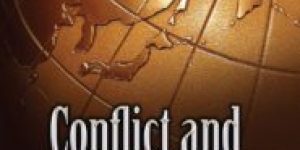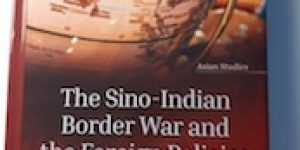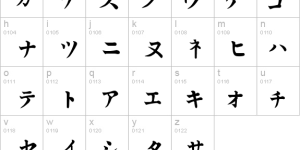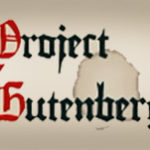My Story ~ 9. Who Is The Foreigner In This Place?
No comments yet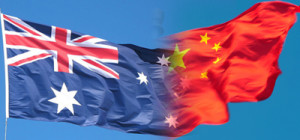 “As long as you are not lazy, have a strong commitment and are willing to work, you can easily survive in this country.”
“As long as you are not lazy, have a strong commitment and are willing to work, you can easily survive in this country.”
My hometown is Nanyang, Henan Province, where Zhuge Liang, a famous ancient Chinese strategist wrote his “Art of War”, titled as “Northern Expedition Memorial” during the Three Kingdoms period of ancient China.
I came to Australia in 1997 after graduation from a Chinese university, I majored in petroleum. I consider myself to be of average intelligence, I am conscientious and inclusive, serious about my work, so I have achieved good outcomes. Thanks to Curtin University which provided me with a full scholarship, I started to pursue my doctorate degree in Australia. At that time, the economic conditions of my family were not good, so I had to depend on myself completely.
I came to Australia alone. My supervisor suggested that he could help me to bring my family to Australia; he would reimburse the air tickets of my wife and child. At that time, I was very poor, so my supervisor’s offer was timely and a great help for me. I remember I had only 100 Australian Dollars in my pocket when I registered at Curtin University. A student was required to pay 250 Australian Dollars for registration; I didn’t have enough money for the fee. A deputy supervisor was with me, he saw my embarrassing situation and said, “No worries,” and wrote a cheque and paid for my registration fee. I was a good student, concentrated on my study without thinking about luxuries, I was happy with my simple life. Because of the scholarship, life was not too difficult. I heard that many of my predecessors coming to Australia had experienced a tough life and hardship. Compared to them, I thought I was luckier.
Nevertheless, like most Chinese students, I also took part-time jobs during my study period in Australia. I remember that my first job was related to my major, doing translation in petroleum matters. An Australian company was planning to invest in a project in China; they came to our school seeking translators. I was the only Chinese student majoring in petroleum geology at that time. That was my first job. I thought the money was good, 25 Australian Dollars per hour. It was sky-high in comparison with other wages at that time. The translation project was big, so I organized two or three assistants to form a translation group. I was responsible for the task, including recording timesheets. I was so tired and busy but I felt great. Ever week I earned more than one thousand Australian Dollars in my spare time.
My second job was working in a bakery. We also formed up a group made up of locals and foreigners from China and other countries. These were the jobs that I worked while I studied in Australia. While doing part-time work, I also successfully applied for a small scientific research fund from Australian Natural Science Fund to support my research project in the second year. My supervisor was very happy with me; because I didn’t need to spend his money and he could even use my money on a business trip.
My Family
I have two children. The eldest girl was born in China; my son was born in Australia in June 1999. The birth of my son was very dramatic. In contrast to China, you can check the baby’s gender in Australia. However, the doctors couldn’t determine whether the baby was a boy or a girl. In the end, they guessed it was a girl, so we prepared things for a baby girl. It turned out to be a boy, so that was a pleasant surprise.
I have had a lot of help from my many friends and colleagues. However, the person I want to thank most is my wife who has always cared for me, for our children and family without complaints and has given great support to my life and career. Our parents are not so well, so both our children were raised by my wife. In particular, caring for the children was so hard when they were growing up. Thanks to her contribution and devotion, I was able to concentrate on my career. I think my wife is the person who had the greatest influence on my life.
My Career
I was an academic researcher to start with, and now I am a businessman. That’s the biggest change in my career. There are objective reasons and also some subjective reasons. As the saying goes, “Difference in profession makes one feel worlds apart.” From academic research to running an enterprise, these two areas are totally different and to make such a change is not always easy, it is a continuous process of learning and accumulation.
Now, I manage a service company specializing in education and immigration, mainly engaged in consultation for Chinese students studying abroad, and organizing exchange programs between schools in China and Australia. We also organize student exchanges and Chinese investors to Australia, as well as foreign investment in both countries. We have established offices in Beijing and Melbourne. I employ many people with different backgrounds in my enterprise, including my Australian staff. My next target for my career is to possibly increase education projects, including vocational training and professional training between China and Australia based on strengthening the current work. Another target is very realistic, namely, how to expand the scale of the solar energy company being run by myself, focusing on the application of commercialization and how to store solar energy. My major is petroleum which belongs to the non-renewable energy resource; I would like to use my knowledge for this new project. I am organizing a team for project research into renewable energy.
Frankly speaking, I feel like taking a break and have a rest. I am over 50 years old, close to the retiring age. But I am not a person who enjoys an easy life. I may continue working and but withdraw myself from the front line a little. So I would like to take some time to travel, relax a bit and enjoy my life. Someone has said I am a workaholic. Actually, I am not. But when I see so many things that need to be done, I just do them until the task is completed. Otherwise, I don’t feel comfortable. That is me, my work habits.
Cultural Identity
I think Australia is a country with a neat social structure, which is not only reflected in the legal and social systems, but more so in the people, including personal order – the code of conduct of individuals, ethical standards and people’s behavior, etc. Personal order means the order of the whole society, everything here seems in perfect order. We can describe it as “harmonious”, a very fashionable term in China nowadays.
After living in Australia for over a decade, I can see big changes; more and more mainland Chinese are coming to Australia, especially to Western Australia. I remember when I first came to Australia; you did not see many Chinese students from mainland China in Perth. The new generation of Chinese immigrants have made a great contribution to Australian society, including economy, culture and industries; they have set up strong connections between China and Australia. I remember 20 years ago, everywhere was so quiet, shops closed at 5pm, you could only hear some noise during the peak time. But now, you can see people everywhere, shops and supermarkets are open at night and weekends. We even have traffic jams during rush hours. In another aspect, there was not much Chinese investment in Western Australia 20 years ago. The earliest investor was Anshan Iron and Steel Group Corporation. But now, many Chinese investors have invested in Western Australia, including big mining companies, petroleum companies, engineering and agricultural companies. It has been said that China needs Australian resources for their development; on the other hand, it is also true that China has realized the importance of Western Australia, not only mining resources, agriculture and technology, but also its cultural and service industries.
Although I have Australian citizenship, I still feel I am Chinese. Australia is an immigration country, 90% of the population are immigrants, thus cultural differences definitely exist. You can’t deny it, even if the first and the second generations of the immigrants are totally different from the younger generation regarding each other’s cultural identity. The young immigrant generation think and act as if they are locals, even if some were not born in Australia; they have integrated into the society. Take my daughter for example, she works in an Australian law firm, she is the only one with a Chinese background, but she is treated the same as everyone else. She has grown up and been educated in Australia, she talks just like an Australian young person. She might think her parents are foreigners. Even though I am not that old, Chinese culture is engraved in my bones. That does not prevent me from integrating into Australian society, I willingly accept Australian culture. Although I still cannot understand the local culture completely, such as their historical allusions, Aussie slang or jokes, sometimes I feel puzzled when everyone laughs at something which doesn’t seem funny to me at all. Maybe it is the same when a foreigner tries to learn Chinese; they can be puzzled or confused with what the Chinese are talking about. In this multi-cultural country, it’s hard to explain the concept of a “foreigner”. Who is the foreigner in this place? Sometimes, I think many people around me are more foreign than myself.
Actually, the cultural identity may mean giving more topics to your cultural cycle so that you can talk about it without any obstacles. For example, we hold some gatherings. Actually, people talking with each other tend to have the same background. I think that is very natural. Thus, in social contact, it refers to contact with things, a contact between friends, a contact between colleagues sometimes and also a contact with strangers. Sometimes, I think the concept “mainstream society” is not so accurate. As long as you can live here comfortably, are able to make a contribution to the society, the society also can accept you and your behavior is not incompatible with the society, you shall be a member of the mainstream society. Both of my two children were born here. They speak idiomatic English and go to the best local private school. My daughter was born in China and came to Australia with us at the age four. Now, she has graduated from college majoring in law with good results. At present, she works at a local law firm. Her colleagues and superiors treat her equally without discrimination. I think we are the social main stream.
Australia is a society in which one can survive very easily. As long as you are not lazy, are devoted and willing to work, you can not only reach the living standards of ordinary people, but also have a chance to step into the upper-middle society. If you want to live better, you may have to make more effort and need certain abilities and opportunities. In short, one can live very easily with personal ability and industrious work.
In Australia, human value tents to be reflected by personal ability. Sometimes you may think others look down upon you. However, if you are confident enough and strong enough, you will put it aside. Certainly, some people at low cultural levels have the language and behaviour and engage in racial discrimination. This phenomenon unfortunately exists everywhere.
I remember an old professor more than 70 years old who said, “What’s your objective for receiving education? It is to enjoy life.” As a matter of fact, in my opinion, enjoying life doesn’t mean enjoying personal life but refers to the concept that everyone enjoys life and this gives rise to a harmonious society.
You May Also Like
Comments
Leave a Reply



